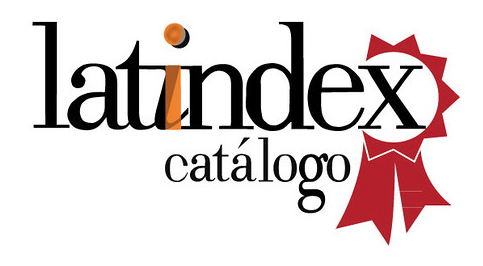Strategies and challenges for the promotion of a responsibility mindset in technical career students during internships
DOI:
https://doi.org/10.20868/abe.2021.3.4735Abstract
Promoting responsibility values and knowledge of students requires actions with a strong focus on citizenship and ethics, with the aim to commit, engage, and empower future professionals. In this sense, a key question arises: how to define and foster responsibility among professionals at different organizational levels? This paper deals with contextual factors and key concepts for promoting responsibility-related values and competences (knowledge, skills, attitudes) throughout curricular internships carried out by students of technical degrees. In this work, we explore the advantages and challenges of working on a responsibility approach at this stage of a professional career, and we outline ideas for optimizing the process.Downloads
References
UNFCCC, «Conference of the Parties (COP) UNFCCC». https://unfccc.int/process/bodies/supreme-bodies/conference-of-the-parties-cop (accessed Mar. 20, 2021).
European Commission, «A European Green Deal», European Commission - European Commission. https://ec.europa.eu/info/strategy/priorities-2019-2024/european-green-deal_en (accessed Mar. 20, 2021).
P. Glavič, Z. N. Pintarič, and M. Bogataj, «Process Design and Sustainable Development—A European Perspective», Processes, vol. 9, n. 1, Art. n. 1, Jan. 2021, doi: 10.3390/pr9010148.
M. Lieder and A. Rashid, «Towards circular economy implementation: a comprehensive review in context of manufacturing industry», J. Clean. Prod., vol. 115, pp. 36-51, Mar. 2016, doi: 10.1016/j.jclepro.2015.12.042.
J. M. Smith, C. J. McClelland, and N. M. Smith, «Petroleum Engineering Students’ Views of Corporate Social Responsibility», presented at 2016 ASEE Annual Conference & Exposition, jun. 2016, Accessed: Mar. 20, 2021. [Online]. Available at: https://peer.asee.org/petroleum-engineering-students-views-of-corporate-social-responsibility.
J. D. Sachs, G. Schmidt-Traub, M. Mazzucato, D. Messner, N. Nakicenovic, and J. Rockström, «Six Transformations to achieve the
Sustainable Development Goals», Nat. Sustain., vol. 2, n. 9, Art. n. 9, Sep. 2019, doi: 10.1038/s41893-019-0352-9.
P. Cane, Responsibility in Law and Morality. Oxford: Hart Publishing, 2002.
R. A. Duff, «Responsibility», in Routledge Encyclopedia of Philosophy, 1st ed., London: Routledge, 2016.
D. Birnbacher, «Philosophical Foundations of Responsibility», in Responsibility: The Many Faces of a Social Phenomenon, A. E. Auhagen and H. W. Bierhoff, Eds. London: Routledge, 2001, pp. 9-22.
S. Baumgärtner, T. Petersen, and J. Schiller, «The Concept of Responsibility: Norms, Actions and Their Consequences», Social Science Research Network, Rochester, NY, SSRN Scholarly Paper ID 3157667, Apr. 2018. doi: 10.2139/ssrn.3157667.
D. Robb, «Moral Responsibility and the Principle of Alternative Possibilities», in The Stanford Encyclopedia of Philosophy, Fall 2020., E. N. Zalta, Ed. Metaphysics Research Lab, Stanford University, 2020.
R. McKeon, «The Development and the Significance of the Concept of Responsibility», Rev. Int. Philos., vol. 11, n. 39 (1), pp. 3-32, 1957.
R. E. Freeman, Strategic management : a stakeholder approach. Boston : Pitman, 1984.
Business Roundtable, «Statement on the Purpose of a Corporation», Business Roundtable - Opportunity Agenda. https://opportunity.businessroundtable.org/ourcommitment (accessed Mar. 19, 2021).
R. Von Schomberg, «Prospects for Technology Assessment in a Framework of Responsible Research and Innovation», in Technikfolgen abschätzen lehren: Bildungspotenziale transdisziplinärer Methoden, M. Dusseldorp and R. Beecroft, Eds. VS Verlag für Sozialwissenschaften, 2011.
H. R. Bowen, Social responsibilities of the businessman. New York: Harper, 1953.
W. C. Frederick, «The Growing Concern over Business Responsibility»:, Calif. Manage. Rev., jul. 1960, doi: 10.2307/41165405.
A. B. Carroll, «A Three-Dimensional Conceptual Model of Corporate Performance», Acad. Manage. Rev., vol. 4, n. 4, pp. 497-505, 1979, doi: 10.2307/257850.
UNDESA, «SDGs. Sustainable Development Knowledge Platform». https://sustainabledevelopment.un.org/sdgs (accessed Apr. 27, 2020).
European Union (EU), «Council Recommendation of 22 May 2018 on key competences for lifelong learning», Off. J. Eur. Union, may 2018, [Online]. Available at: https://eur-lex.europa.eu/legal-content/EN/TXT/?uri=uriserv%3AOJ.C_.2018.189.01.0001.01.ENG&toc=OJ%3AC%3A2018%3A189%3ATOC.
Downloads
Published
Issue
Section
License
ABE (Advances in Building Education / Innovación Educativa en Edificación) does not charge authors for processing or publishing an article and provides immediate Open Access to its content. All content is available free of charge to the user or his institution. Users are permitted to read, download, copy, distribute, print, search or link to the full text of articles, or use them for any other lawful purpose, without prior permission from the publisher or author. This is in accordance with the BOAI definition of open access.
- Authors retain the copyright and grant to the journal the right to a Creative Commons attribution / Non-Commercial / Non-Derivative 4.0 International (CC BY NC ND) License that allows others to share the work with an acknowledgement of authorship and non-commercial use.
- Authors may separately establish additional agreements for the non-exclusive distribution of the version of the work published in the journal (for example, placing it in an institutional repository or publishing it in a book).
Unless otherwise indicated, all contents of the electronic edition are distributed under a Creative Commons license.














